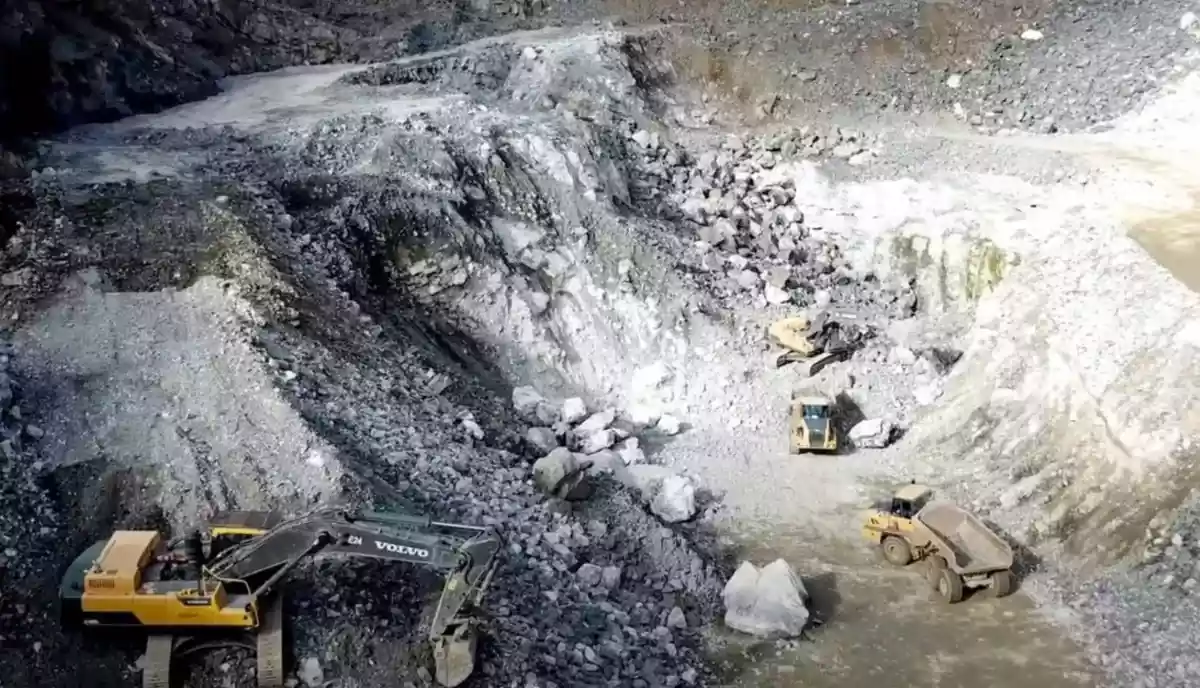
ZIMBABWE’S multibillion-dollar lithium sub-sector is facing a whipsaw this year, with reports that the industry may have to cull over 1 000 jobs due to the sharp decline in lithium carbonate prices in the international market.
Lithium, used in electric vehicle batteries and to store renewable energy, has become Zimbabwe’s third biggest mineral export after platinum group metals (PGM) and gold, bringing in US$209 million in the first nine months of 2023.
According to Inter Horizon Securities (IH), lithium output is expected to have increased by 761% to 881 709 tonnes in 2023 with recorded export sales of US$716 million.
However, because of the weakening commodity prices on the global market, rising geopolitical tensions, and an unclear economic future for the world’s top nations, all of these gains could be lost.
IH estimates that the production of lithium increased by 761% in 2023 to 881,709 tonnes, with export earnings of US$716 million.
Since 2023, there has been a decline in lithium prices, which has been mostly attributed to China’s slowing electric vehicles sales growth.
For instance, lithium carbonate prices in China dropped from a record high of US$81,360 per tonne in November 2022 to US$20,782 per tonne in the current month, according to Carbon Credits.com, a trusted voice in commodities information.
This marked the lowest level in two years, reflecting a 67% decrease year-on-year.
- Chamisa under fire over US$120K donation
- Mavhunga puts DeMbare into Chibuku quarterfinals
- Pension funds bet on Cabora Bassa oilfields
- Councils defy govt fire tender directive
Keep Reading
Prices could fall as much as 30% this year, according to several reports.
In response to the plummeting prices, Chinese refining companies are taking measures such as cutting production or suspending operations, reports show.
Supply disruptions have a major impact on price changes because lithium is a specialised commodity produced in limited quantities.
Changes in consumer behaviour can also quickly affect supply and demand, especially with regard to EVs and consumer electronics.
Geopolitical situations and laws can also affect the lithium market and change the dynamics of demand.
Furthermore, new extraction processes brought about by technological improvements have an impact on costs and the overall supply.
Workers’ unions told Standardbusiness last week that due to the decline in lithium prices, local mining firms were considering cutting down costs by laying off more than 1 000 workers.
“We are in a dilemma to be honest,” Zimbabwe Diamond and Allied Mineral Workers Union secretary general Justice Chinhema said.
“Almost all the big lithium mines are cutting off jobs; they are not renewing fixed-term contracts that workers have been signing.
“They are citing a decline in the prices of lithium. This is confirming our demand to end casualisation of labour, which is rampant.”
He added: “Workers are signing short-fixed term contracts that employers can terminate any time.
“This needs to be stopped by putting a provision in the mining industry collective bargaining agreement that cap timeframe any employee can sign contracts.
“So far, above 500 employees have lost jobs in all the eight lithium mines and we are very worried that over 1 000 workers might be following.
“This is also a confirmation that the extractive sector has no job security at all.
“The created jobs are not linked to any standard if workers can be terminated anyhow.”
Prospect Lithium Zimbabwe also had plans to reduce the labour force by about 164 employees effective from January 2024, citing lithium prices, according to workers’ unions.
Sandawana Mines general manager Godwin Gambiza told our sister paper NewsDay recently that lithium prices were no longer viable for operations and there were no sales outlets available for the ore.
“What has happened is that lithium prices have gone right through the floor to the extent that the prices that are on the market are way lower than the cost of mining lithium ore,” he said.
“For your information, the lithium prices have fallen by 80% and for lithium ore between 2% to 2,5%.”
An executive at one of the lithium companies in the country, who preferred anonymity, told Standardbusiness that some measures will have to be taken at company levels to protect the businesses from collapsing.
"We are in a catch-22 situation. As businesses, we cannot continue incurring costs when there is no outlet on the market right now for the product," he said.
“Unfortunately, we will be forced to cut operational costs through job cuts,” the executive said.
Besides softening commodity prices, the local lithium sector faces issues of insufficient power supply and high electricity costs.
Lithium processing is energy-intensive.
Professional and General Mine Workers Union of Zimbabwe president Abraham Kavalanjila said the future of workers in the lithium sub-sector was gloomy in the short-term.
“From our records, plus or minus 300 jobs are on the line,” Kavalanjila said.
“We also see workers being abused due to unfavorable conditions of contract of employment.
“Massive unemployment also will affect the country as a whole. "We will end up losing professionals, who do perfect jobs going for greener pastures out of the country.”
IH said the price outlook for key minerals like lithium and platinum group metals remain bearish as demand for electric vehicles, especially in China, keeps nosediving.
Zimbabwe possesses Africa’s largest lithium reserves and the fifth largest globally, but the resource has remained largely untapped due to a lack of investment.
There are around eight different lithium exploration and mining projects at different development stages in the country.
These include Arcadia Lithium Mine, Sabi Star Lithium, Sandawana Mines, Bikita Mine, Zulu Lithium Project, Step Aside Lithium Project, Prospect Lithium Zimbabwe, Mirrorplex Lithium Project, Kamativi Lithium Project, Mutoko Lithium Private Limited among others.










